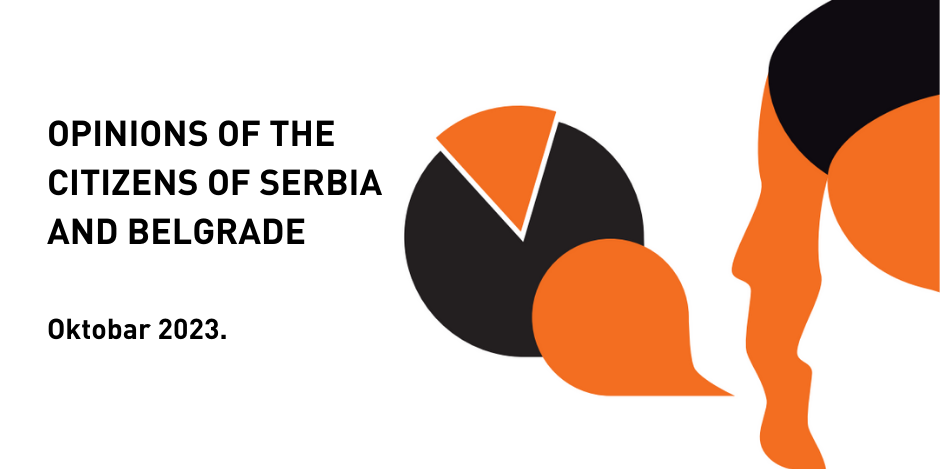Improving the standard of living a priority for citizens

Nearly half of the citizens – 47 percent, believe that Serbia is moving in the wrong direction, as opposed to 38 percent who think the country is on the right track – these are the findings of the public opinion survey on the nation’s political opinions in the run-up to the election campaign, conducted by Crta from September 23 to October 5, 2023.
Citizens see the economic situation, namely a poor standard of living, rising prices, and inflation, as the biggest problems. While 39 percent of respondents consider the economy as one of the issues, for 29 percent of them, it is the most significant problem that Serbia is facing today. Kosovo was listed as the primary concern by 23 percent of citizens, and it is important to note that the survey was conducted during the days of a security crisis in northern Kosovo.
The opinion of almost every other citizen is that the government has not fulfilled most of the promises it made before the previous elections, while 36 percent of respondents believe that what was promised has largely been delivered. To achieve better results in the elections and address citizen dissatisfaction, the opposition would need to act collectively – a coalition of parties gathered around the organization “Serbia Against Violence” would be supported by 41 percent of citizens, 49 percent would support the coalition led by Aleksandar Vučić, and 10 percent would support the right-wing opposition block (Dveri, Zavetnici, Novi DSS, and POKS).
If the parties from the “Serbia Against Violence” block were to go to the elections separately, they would collectively win 21 percent of the votes, while the list led by Vučić would be supported by 56 percent of citizens in that case.
The chances of the so-called pro-European opposition are even more significant in the Belgrade elections – their coalition would be supported by 51 percent of voters in the capital.
The main criticisms citizens have of the opposition relates to its disunity (according to 15 percent of citizens) and the lack of a plan for changing the government (also 15 percent). Consistent with the response that economic problems trouble them more than anything else, most citizens would expect the list they vote for to prioritize improving the standard of living for citizens (39 percent), with the second largest group being those who primarily expect corruption to be tackled (19 percent).
Crta conducted two telephone surveys from September 23 to October 5 on a random, representative sample (1,544 respondents for Serbia excluding Kosovo and 806 respondents for Belgrade).
The detailed findings of the survey can be found here.








